Gentrification is the new litmus test in the county supervisor race in South L.A.
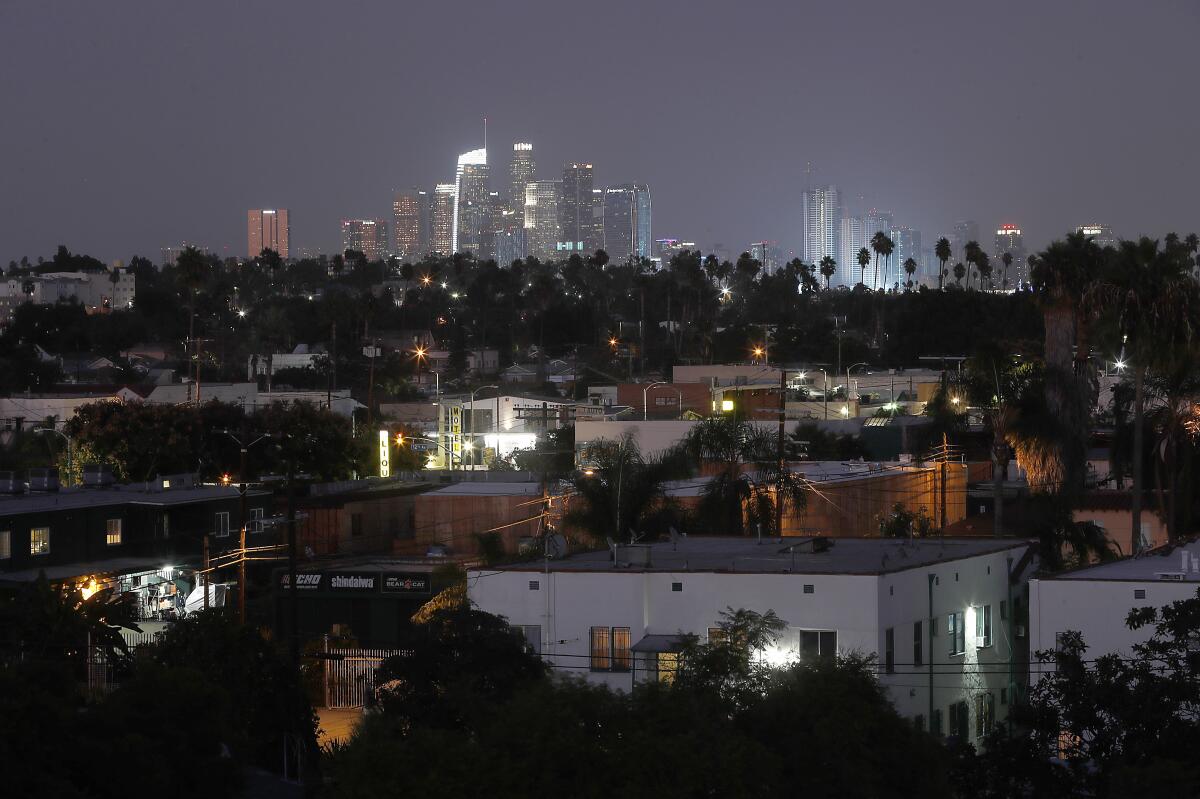
The last time there was an open seat for the 2nd District on the Los Angeles County Board of Supervisors, it was 2008 and South L.A. was a very different place than it is today.
Generations of disinvestment had led to stubbornly low property values that were made worse by the Great Recession. The violent crime rate was double what it was in the rest of the county. Blight was dragging down entire neighborhoods south of the 10 Freeway, making it hard to attract the type of development and jobs that Crenshaw, Watts, and other black and Latino communities so badly needed.
But now South L.A. is in the midst of a renaissance, driving up housing costs and homelessness and leading many voters to worry about the future of one of California’s last black enclaves.
So far, these issues have dominated the campaigns of the eight candidates — including L.A. City Council President Herb Wesson, state Sen. Holly Mitchell and former City Councilwoman Jan Perry — vying to replace termed-out Supervisor Mark Ridley-Thomas. How they address voters’ worries will likely determine the winner of the March election and possible runoff in November 2020, political observers say.
“I want us to do all that we can to preserve the people that live here,” said Leimert Park resident John Jackson. “I moved to a black neighborhood for a reason.”
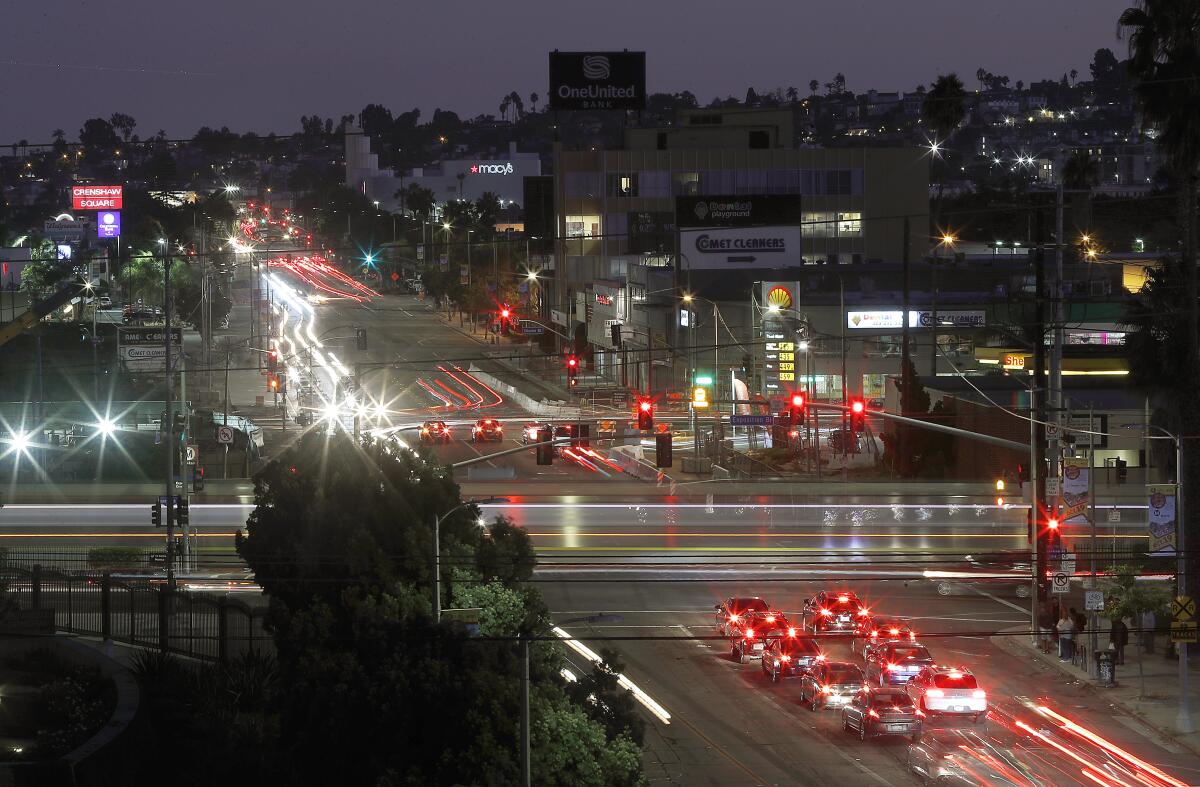
Next year, the Crenshaw/LAX light rail line will roll through the spine of the 2nd District. SoFi Stadium, the NFL’s most expensive venue to date, also will open next year in Inglewood and hold its first football game in the fall. Coffee shops that pour lavender lattes and restaurants that concoct $13 craft cocktails have sprung up. Developers are angling to build luxury housing in an area that was once shunned.
Rather than worrying about declining property values, voters now fear gentrification and state laws that would accelerate it.
In addition to the three front-runners, all of whom are black, lawyer Chan “Jake” Jeong, Lennox School Board member Marisol Cruz, political neophyte Fred Wimberley, businessman Rene Rigard and teacher Sharis Rhodes — who was thrust into homelessness last year with her toddler — are also in the race. Community activist Earl Ofari Hutchinson has said he plans to run, too. Candidates have until December to file.
Whoever wins will be one of five members of the L.A. County Board of Supervisors, who collectively represent about 10 million people and manage a $30-billion budget. Although often invisible to constituents, the board oversees homeless services, the probation and foster care systems, child protective services and mental health services.
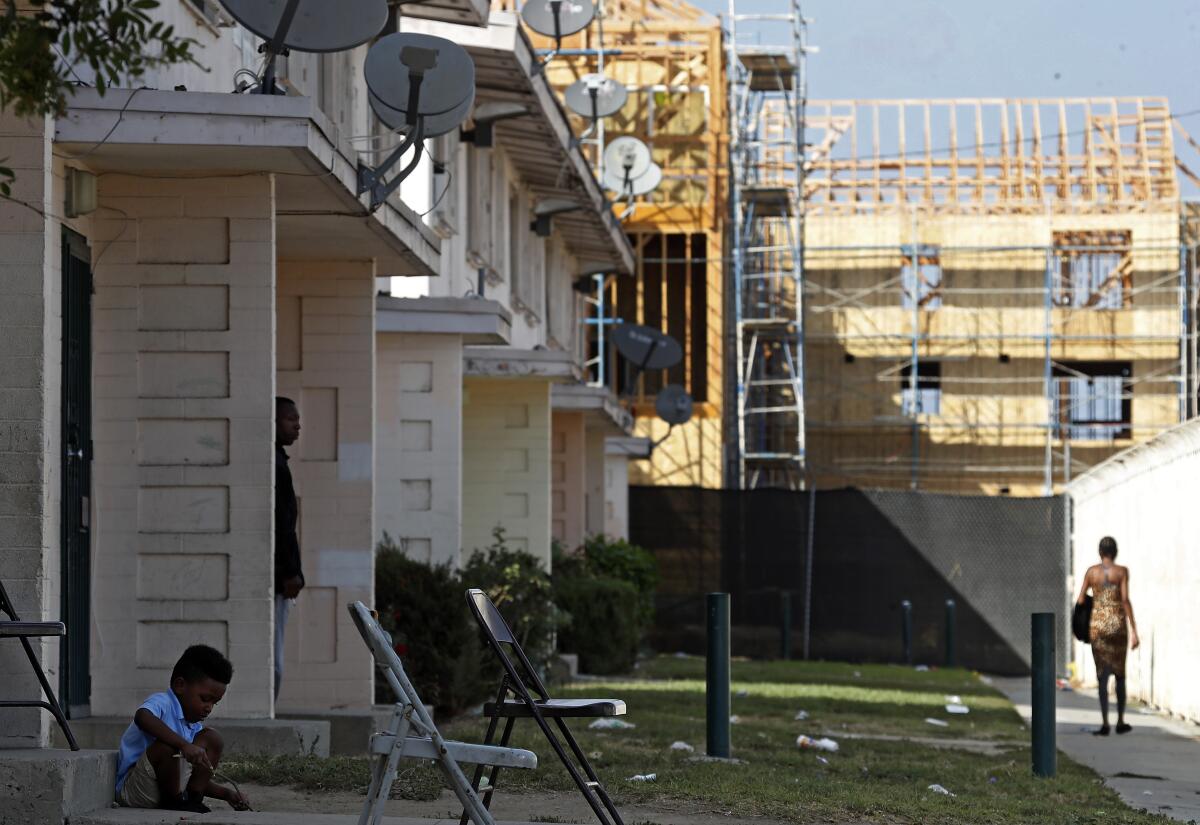
For months, the candidates have been competing for endorsements and trying to boost their visibility among voters in a district of almost 2 million people that runs from Culver City to Compton. In View Park, Willowbrook and other unincorporated areas on the southside, the board is the equivalent of their city council and the supervisor their mayor.
Although the 2nd District hasn’t been predominantly black in decades, half of the county’s black population still resides there.
The seat is seen as “the crowning glory of black political power in Southern California,” said political consultant Dermot Givens, and the holder is, historically, one of the most powerful black politicians in the state.
In recent months, candidates have mostly been fielding questions about homelessness and affordable housing, including concerns about how the money from Measure H, a county sales tax for homeless services, is being spent. There also was a recent uproar among residents over a developer’s plan to build a 577-unit housing complex in South L.A. without any affordable units, prompting Wesson to publicly oppose the project.
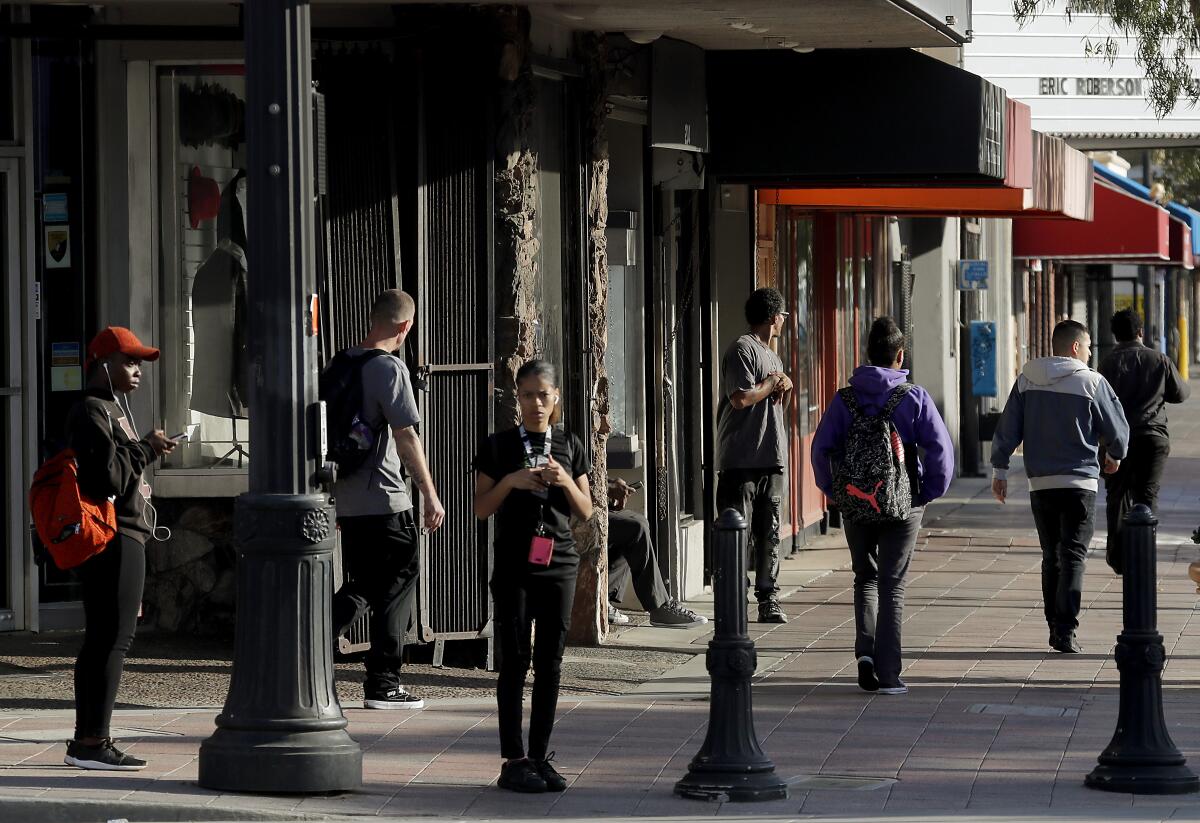
The 2nd District includes part of downtown L.A.’s skid row and has the largest number of people sleeping on the streets and in vehicles of any supervisorial district, according to this year’s L.A. County annual homeless count. Countywide, black people are 9% of the population, but represent 40% of the homeless population — an overrepresentation documented in a recent study by the Los Angeles Homeless Services Authority.
These realities have led to an unlikely litmus test for the candidates for supervisor — Senate Bill 50.
The bill, which died in the California Legislature in May, would have allowed the construction of higher density housing — low–rise apartments and townhomes where single-family homes stand — in transit-rich areas near jobs and schools.
Even though members of the Board of Supervisors have no authority over state policy or lawmakers, residents still fear SB 50 will return and reshape single-family neighborhoods by pouring gasoline on the gentrification that is already occurring in South L.A.
State Sen. Scott Wiener (D-San Francisco), SB 50’s author, has tried to push a version of the measure through the Legislature twice, with his latest attempt derailed by suburban homeowners. Its predecessor, Senate Bill 827, was struck down after opposition from low-income residents and communities of color.
Wiener has vowed to bring the bill back again next year.
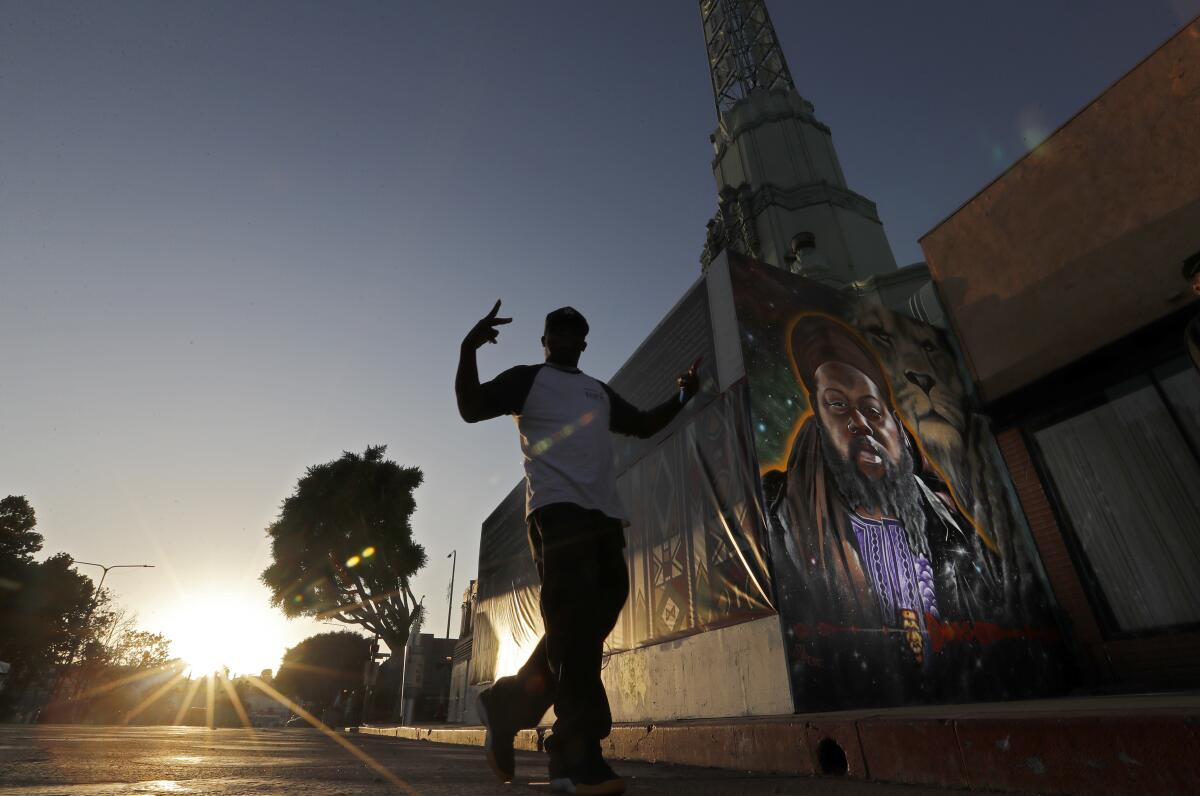
Residents worry that the next version of SB 50 will dismantle single-family neighborhoods by encouraging developers to buy up tract homes and build market-rate units that are out of reach for many black Angelenos, leading to widespread displacement and racial erasure in a county that is 9% black, down from 11% in 1990.
They also fear the bill could override the decade-long discussions that went into crafting South L.A. community plans, in which residents weighed in on what they wanted their neighborhoods to look like in the future.
To address these concerns, Wiener amended SB 50 to exempt “sensitive communities” or those at risk for gentrification from SB 50 for five years and “potentially sensitive communities” for six months. A map from Wiener’s office identified the vast majority of South L.A. as potentially sensitive, but it’s unclear how it would play out.
The stately manors and Spanish-style homes that dot South L.A. were not always open to black people. Racial covenants tucked into property deeds once barred the sale of homes to non-whites. A 1948 U.S. Supreme Court ruling and legislation in the 1950s struck down these discriminatory tactics. But as black people moved in, white people moved out, taking businesses and investment dollars with them.
Now that amenities are returning, residents suspect the changes are to lure the wealthier, mostly white residents who have already started to move in.
“This is luxury housing that is being contemplated,” said Diane Robertson, president of the Sutro Avenue Block Club. “I cannot support decimating entire communities so that the very wealthy can live close to transit.”
Several neighborhood associations have banded together under the South L.A. Alliance for Locally-Planned Growth, a new group formed by Robertson and other community leaders. Its group members have been cornering officials and supervisorial candidates to see where they stand, filling community rooms for the kind of heated debates over development that typically occur in Venice or Beverly Hills.
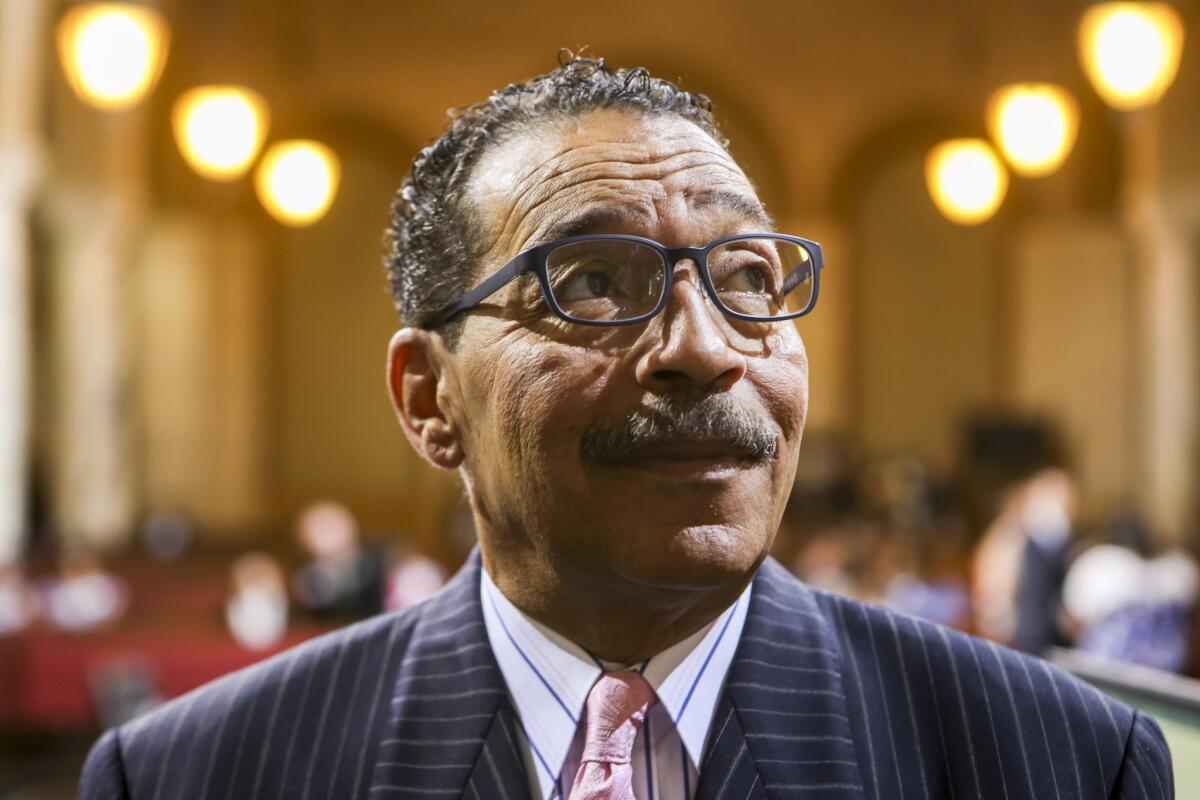
Wesson, who has represented parts of South Los Angeles since 1998, came out in opposition to the bill and its predecessor, SB 827.
“It would be devastating” to communities of color, he said. “Some things you cannot reverse.”
Perry, who ran for mayor in 2013 and recently stepped down as the top executive at the city’s Economic and Workforce Development Department, said she was against SB 50 because it failed to respect the history of marginalized communities.
“It’s the very thing that brings people to the community that you have to protect,” she said. “I would say the same is true of Leimert Park, anyone’s community that has a legacy, particularly a legacy that grew out of racism and discrimination with [racial covenants] preventing people from coming into certain communities. You have to be sensitive to that.”
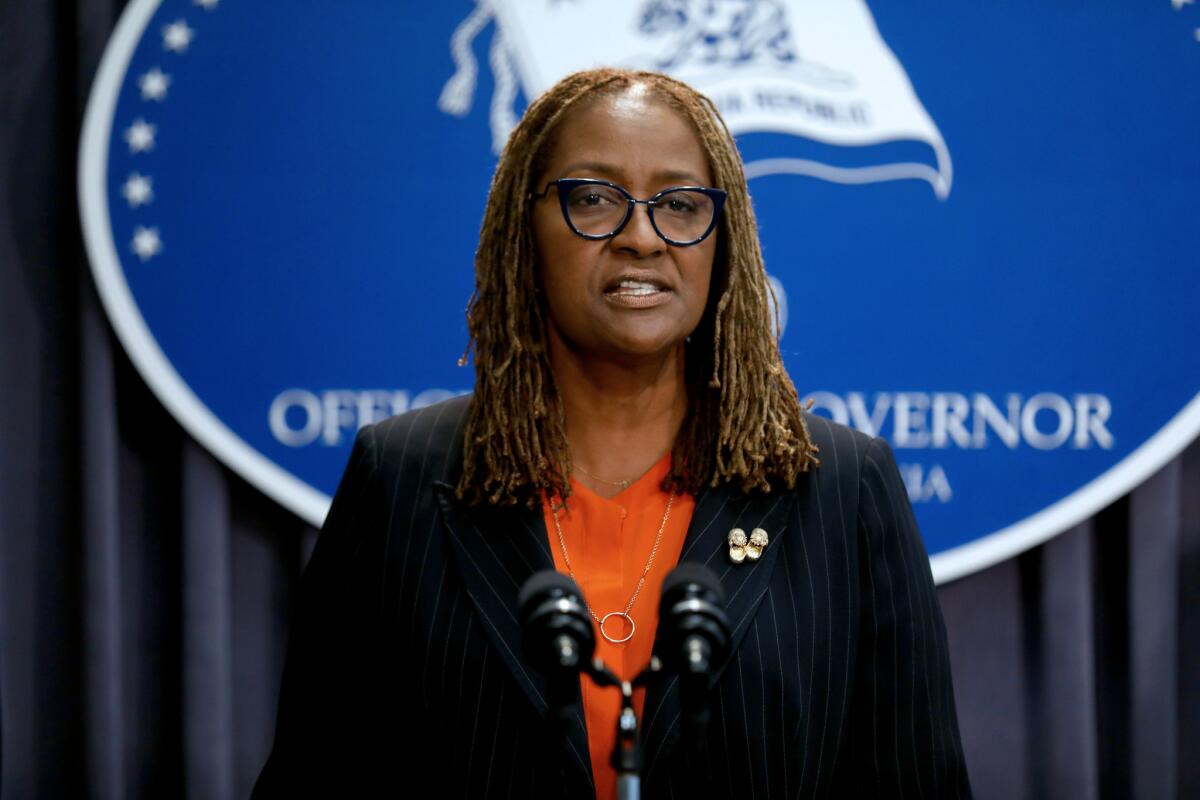
Voters are still trying to figure out what Mitchell thinks.
In the spring, community leaders invited Mitchell to a discussion with only one topic on the agenda: SB 50. About 70 leaders of block clubs and neighborhood councils showed up. For over an hour, they presented Mitchell with maps, studies and research showing the “devastating consequences” of the bill.
Then, Jackson, the Leimert Park resident, asked the question on everybody’s mind.
“Sen. Mitchell, what are your feelings about SB 50,” he recalled asking. “What is your position? Where do you stand?”
Jackson, who owns a small apartment building that has soared in value since he bought it in 2013, worries about being confronted with additional pressures to sell if a developer offered an obscene amount.
What would become of his enchanting tree-lined street that reminds him of Savannah or New Orleans if a developer bought the entire block and built an apartment complex? What would happen to the elderly residents, some on fixed incomes and facing health issues?
Mitchell didn’t pick a side that day.
Months later, in an interview with The Times, Mitchell still could not say if she would support or oppose a bill that allowed upzoning in single-family neighborhoods. Such a measure, she said, would have to be more nuanced. But she added that elected officials and residents have to be aggressive to improve the housing stock across the state.
“Let’s be clear about who the homeless are,” said Mitchell, who has represented part of South L.A. in the Legislature since 2010. They are “our family, friends and neighbors. It’s not people from other places. It’s our people who need to be housed.”
In May, as the debate about SB 50 was heating up in the Legislature, the South L.A. Alliance for Locally-Planned Growth spent 10 days putting together a town hall meeting to inform residents about what’s at stake. The organizers were unsure they could fill the cavernous space inside Holman United Methodist Church in West Adams. And by the time the town hall was held, the state Legislature had killed SB 50 for the year.
But to the surprise of many, it drew more than 250 people anyway.
Wesson said SB 50 was still a threat.
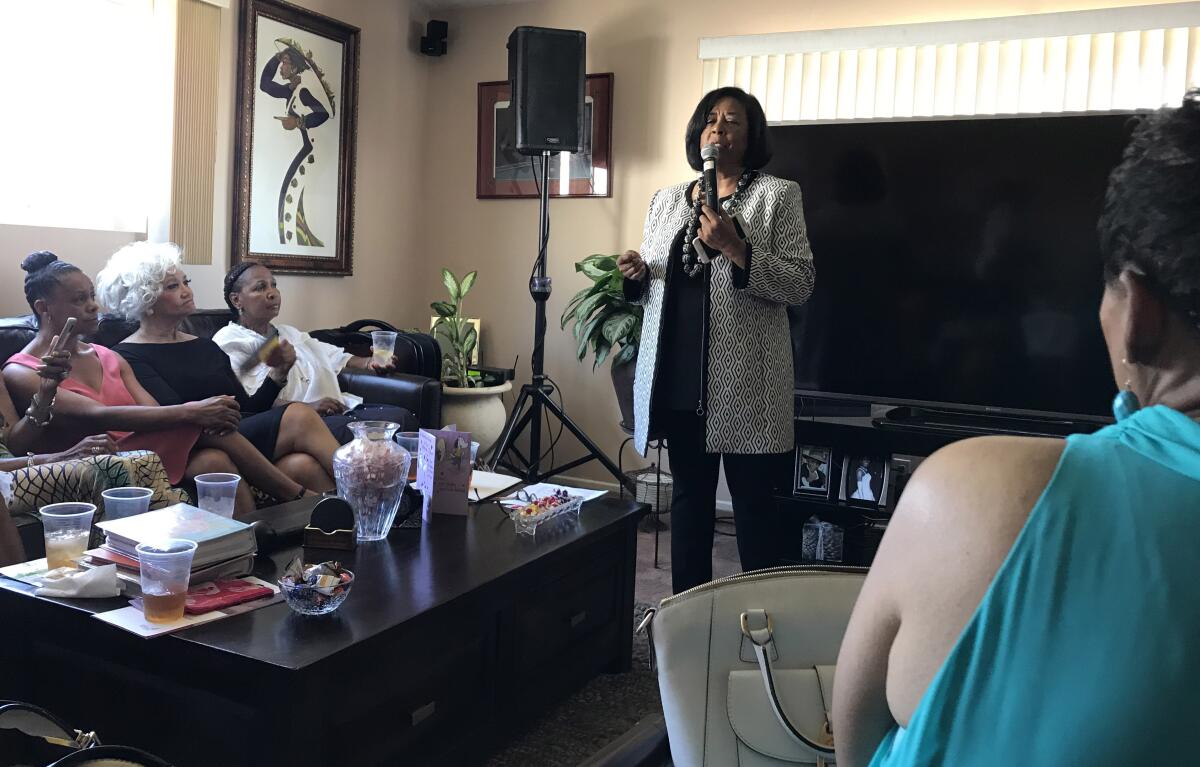
Perry stood along a wall, listening. Mitchell was in Sacramento, pushing her bill to address inequalities in care for black mothers and infants. She sent a representative in her place.
Before the crowd dispersed, a speaker issued a directive: Call your elected officials. A sample script was printed on the back of the meeting’s agenda.
“This issue is so important to me, I will remember how she (or he) voted on this bill in the next election.”
Also printed on the the back of the meeting’s agenda: the numbers to several elected officials, including Mitchell’s office.
More to Read
Sign up for Essential California
The most important California stories and recommendations in your inbox every morning.
You may occasionally receive promotional content from the Los Angeles Times.












